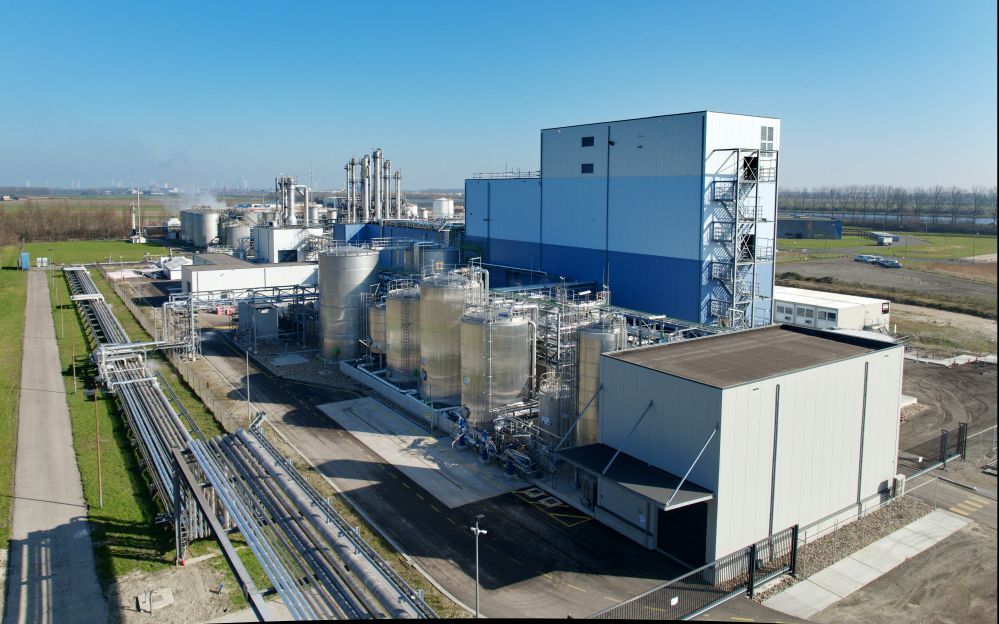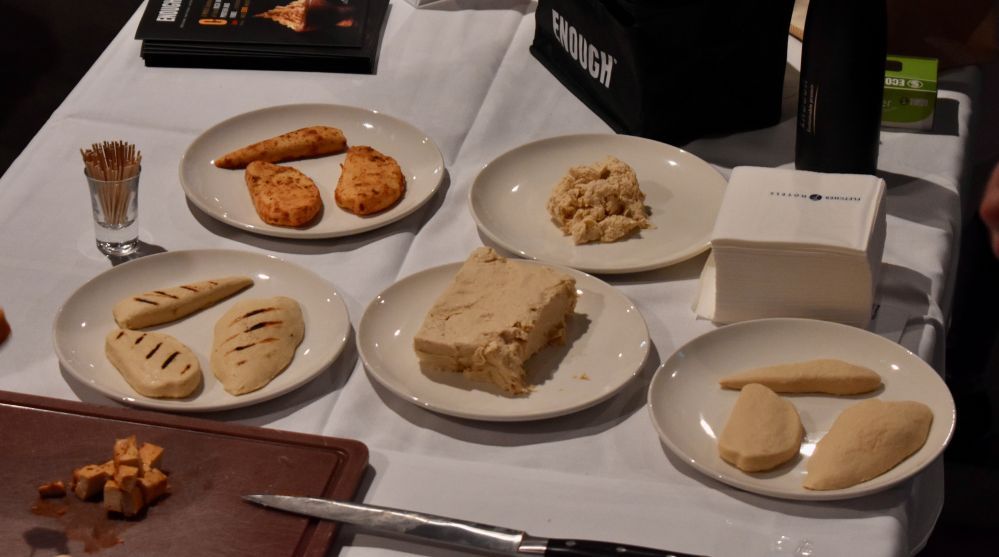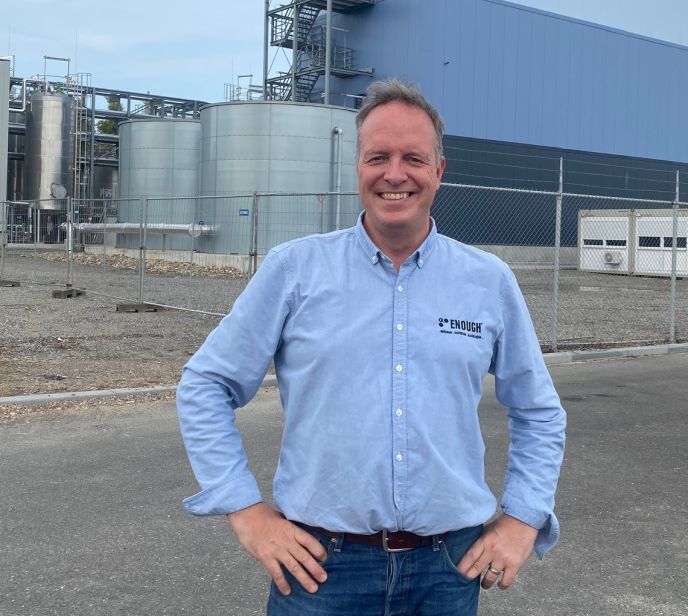- Glasgow-based alt protein startup ENOUGH has raised €40 million ($43.6 million) in a series C round led by World Fund and CPT Capital to expand production of ‘ABUNDA’ mycoprotein, a meat alternative made from fungi.
- Other investors in the round include AXA IM Alts through the Axa Impact Fund, HAL Investments through 280ppm, Onassis Group through Olympic Investments Inc, Tailored Solutions, and Scottish Enterprise.
- The capital injection—which takes the firm’s cumulative funding to €95 million ($103.3 million)—will enable it to double mycoprotein production capacity from 10,000 to 20,000 tons a year at its new factory in Sas van Gent in the Netherlands.
Customers include Unilever, Plukon Food Group, suppliers to Marks & Spencer
Founded in 2015 as 3FBio, ENOUGH makes ABUNDA from the same fungi strain as Quorn (Fusarium venenatum) via biomass fermentation.
Co-located with a Cargill starch facility that supplies it with fermentable sugars as a feedstock, the ENOUGH facility in Sas van Gent harvests its fungal biomass (mycoprotein) and removes most of the water via centrifuge. It then supplies that sugary wastewater to Cargill’s bioethanol facility next door in a zero-waste process.
ENOUGH began production at Sas van Gent earlier this summer, has 30+ customers sampling products, and expects to see the first foods containing ABUNDA hit the market by the end of the year, CEO Jim Laird told AgFunderNews.
Customers include Unilever, which plans to test ABUNDA in its Vegetarian Butcher range; Dutch poultry processor Plukon Food Group; and manufacturers supplying UK retailer Marks & Spencer.
“We’ve got a nice dialogue going with some North American customers,” said Laird, “but the majority of the product will be going to Europe, as frozen distribution going across the North Atlantic doesn’t make much sense from a cost or sustainability perspective.”

‘What we’re doing is very scalable’
While the grim financials at Beyond Meat and the string of alt meat startups going out of business in recent months have dominated the headlines, “for every horror story in this market, there are also success stories out there,” claimed Laird.
“My view of the market is that we had a bit of a hype cycle, but the underlying trends [driving alt protein] are there. One in five Whoppers at Burger King in Germany is now plant based, and in Belgium, it’s one in three.”
While alternative proteins experienced a 42% drop in investment in 2022 vs 2021, the fact that ENOUGH has been able to raise such a significant sum in the current climate is a testament to the strength of the product and the team, which is longer in the tooth than your average alt protein startup, he observed.
“I’m not your average 25-year-old startup CEO,” said Laird, a CPG veteran who managed Quorn’s international business in 2008-2011. “We’ve been developing this technology for eight years, as continuous processing has its challenges, although it’s more efficient [than a batch process]. It’s definitely harder to raise money today than it was in 2021, but in terms of this round, it’s one of the bigger rounds [in the alt protein category this year].
“There’s still money available and I think investors like b2b more than b2c this year. There are capex costs, but what we’re doing is very scalable. We take a 200,000-liter tank full of water, sugar and micronutrients, we inoculate it with fungus and it doubles in size every four to six hours. In a couple of days we get up to [critical mass] and then we start to harvest on a continuous basis.”
The whole food ingredient emerging from the fermentation tank can be combined with fat, flavors and a binder such as potato protein to make a wide range of products from ‘whole muscle’ type alt chicken to pork substitutes.
Head-to-head with Quorn?
Right now, ENOUGH has one production line with 10,000 tons of annualized capacity, which it plans to double with the latest funding, said Laird. “It’ll take us 18 months to get that in.” Ultimately, the site could make 60,000 tons, he added.
Asked if he was concerned about Quorn’s recent move into b2b ingredients supply, given that the two companies are growing the same base product, he said Quorn had helped pave the way for ABUNDA.
As for the addressable market for mycoprotein, he said, there is room for multiple players: “There’s something like 20 million tons of poultry produced in the European market, so 20,000 tons of ABUNDA is a drop in the ocean.”
On pricing, he said, “We’ve been helped by the fact that inflation in meat has been fairly stark, so that’s certainly made price parity much more accessible.
“I think we also have certain advantages over [plant-based rivals such as] pea protein because we use all the biomass whereas they have to find a market for the starch [in peas] and there are also secondary processing requirements [to get from peas, to pea proteins, to extruded protein]. But fermentation is also capital intensive, so there are no silver bullets in this market.”






